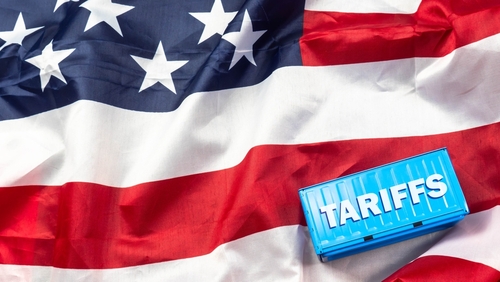From Uniform Duties to a Global Patchwork
One year into President Donald Trump’s tariff overhaul, American businesses are facing a system that has grown complex and is ever-changing. The previous neat structure has given way to a patchwork of duty rates based on a product’s origin and composition. A single item may now face tariffs ranging from 15% to over 50%, depending on where it’s sourced.
Compliance Is More Important Than Innovation
The real cost, many executives say, isn’t just the higher tariffs but the administrative burden. Companies are devoting enormous time and staff to navigating the shifting regulations. Gary Shapiro of the Consumer Technology Association said businesses have spent a draining year managing compliance instead of focusing on innovation. The Justice Department’s push to crack down on customs fraud has only increased the pressure.
Executive Time and Talent Under Strain
Recent surveys indicate that the effect is pervasive: KPMG reports that 89% of CEOs say tariffs will continue to impact business performance in the longer term, and PricewaterhouseCoopers found many executives are devoting as much as 60% of their time to tariff matters. That shift in attention has spawned an unprecedented demand for trade compliance specialists, with companies losing key staff as competition heats up.
Long-Term Investment Plans Put on Ice
The uncertainty around tariffs is now affecting strategic decisions. Unpredictable policy shifts have brought about pauses in factory construction, research budgets, and market expansions. As reported by the Milken Institute, companies are holding back from long-term planning, unable to move forward without clearer guidance on future tariffs.
Reciprocal Tariffs Introduce Legal and Operational Hurdles
Extrapolating on Trump’s reciprocal tariff model, there has been the addition of more layers under a 1977 emergency law: about 100 countries face a 10% baseline tariff, with nearly 100 others seeing rates as high as 41%; these duties stack atop the existing ones. A 40% penalty may apply when officials suspect tariff evasion via third-country routing, but guidelines for how this will be enforced are hazy.
National Security Tariffs Add Further Complexity
Steel, aluminum, autos, copper, furniture, and other products are now subject to national security tariffs, some as high as 50%. Companies must calculate the exact metal content of products and file precise documentation. Even minor errors can trigger full duties on entire shipments—regardless of how small the mistake.
Small Businesses Bear the Heaviest Burden
For smaller companies, the system can be overwhelming. One outdoor-apparel firm reported pausing hiring and product development just to stay compliant. Staff have spent hundreds of hours re-sourcing materials, reworking logistics, and recalculating prices.
Legal Challenges Reflect Growing Frustration Several small businesses have filed suit, challenging the president’s use of emergency powers. Electronics retailer Crutchfield Corp. told the Supreme Court, in a brief, that the unpredictability of the tariff system makes it nearly impossible to plan long term and urged the Court to bring clarity and stability.






















